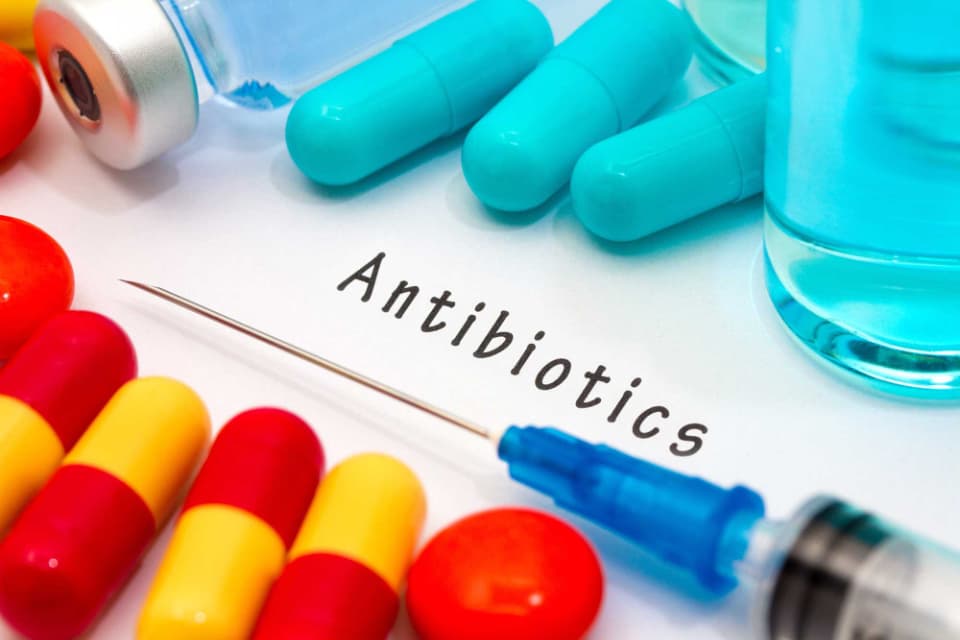Antibiotics in infancy linked to higher asthma and food allergy risk
A large-scale study from Rutgers Health has found that repeated antibiotic exposure in children under two years of age is associated with a significantly higher risk of developing asthma, food allergies and hay fever later in childhood. The research, involving over one million children, demonstrates that antibiotics may disrupt the digestive microbiome during a critical developmental window, potentially leading to lasting health consequences.
Significant findings on early antibiotic exposure
The comprehensive study, published in the Journal of Infectious Diseases on 16 April 2025, examined data from more than 1 million infants from the United Kingdom, tracking antibiotic exposure before age 2 and analysing subsequent diagnoses of chronic conditions through age 12.
The researchers employed both conventional cohort and sibling-matched designs to control for genetic and environmental factors that might otherwise confound results. They found clear dose-dependent relationships between the number of antibiotic courses a child received and their risk of developing certain conditions.
“Antibiotics play a critical role in combatting bacterial infections, but physicians should be judicious when prescribing antibiotics to children under 2, as frequent use may affect long-term health outcomes,” said Daniel Horton, the lead author of the study and a core member of the Center for Pharmacoepidemiology and Treatment Science at Rutgers Institute for Health, Health Care Policy and Aging Research.
The most pronounced associations were seen with asthma (24% increased risk), food allergies (33% increased risk), and allergic rhinitis (6% increased risk). Children who received five or more courses of antibiotics showed even greater risk increases – 52% for asthma and 53% for food allergies compared to children who received only 1-2 courses.
Microbiome disruption as potential mechanism
The study highlights how antibiotics may disrupt the delicate balance of microorganisms in the gut during a critical developmental period. While antibiotics effectively combat bacterial infections, they can also eliminate beneficial bacteria that play essential roles in immune system development.
The researchers note that gut microbiota disruption during infancy may interfere with normal development of immune responses. Animal studies have provided compelling evidence that antibiotic-perturbed microbiota in early life can affect immune development leading to asthma-like conditions.
“Given the multiple roles of microbiota in human physiology and development, early disruption of microbiota-dependent pathways, even if transient, may contribute to the development of diverse diseases,” the authors note in the paper.
Interestingly, the study found that antibiotic-associated risks for both asthma and food allergies appeared to increase in recent years, suggesting potential changes in prescription patterns or other environmental factors.
Intellectual disability association warrants further investigation
An unexpected finding was a strong dose-response relationship between antibiotics and intellectual disability, with children receiving five or more courses showing a 73% increased risk in the full cohort and a dramatic 179% increased risk in the sibling-matched cohort.
However, the authors caution that the baseline risk remained low, with small absolute differences between exposed and unexposed children. They recommend further studies to confirm this association.
Limited impact on autoimmune and other conditions
The researchers did not find significant associations between early antibiotic exposure and various autoimmune diseases, including celiac disease, inflammatory bowel disease, juvenile idiopathic arthritis, psoriasis, and type 1 diabetes. Similarly, no consistent relationships were observed with neurodevelopmental conditions such as attention-deficit/hyperactivity disorder or autism spectrum disorder.
“Children receiving multiple antibiotic courses between birth and age 2 were more likely to develop asthma, food allergies, allergic rhinitis, and intellectual disability. However, risks of most autoimmune, neurodevelopmental, and psychiatric conditions studied were minimal following early-childhood antibiotic exposure,” the authors conclude.
Judicious antibiotic use recommended
The study’s findings underscore the importance of careful consideration when prescribing antibiotics to young children. While acknowledging their vital role in treating bacterial infections, the researchers emphasize the potential long-term consequences of frequent antibiotic use during early development.
“Antibiotics are important and sometimes life-saving medicines, but not all infections in young kids need to be treated with antibiotics,” said Horton. “Parents should continue to consult with their children’s doctors on the best course of care.”
The researchers emphasize that despite these important findings, their study contributes to “mounting evidence for long-term harms from early-life antibiotic exposure, underscoring the need for judicious antibiotic use in infancy and early childhood.”
Reference
Beier, M. A., Setoguchi, S., Gerhard, T., et. al, (2025). Early childhood antibiotics and chronic pediatric conditions: a retrospective cohort study. Journal of Infectious Diseases. https://doi.org/10.1093/infdis/jiaf191


